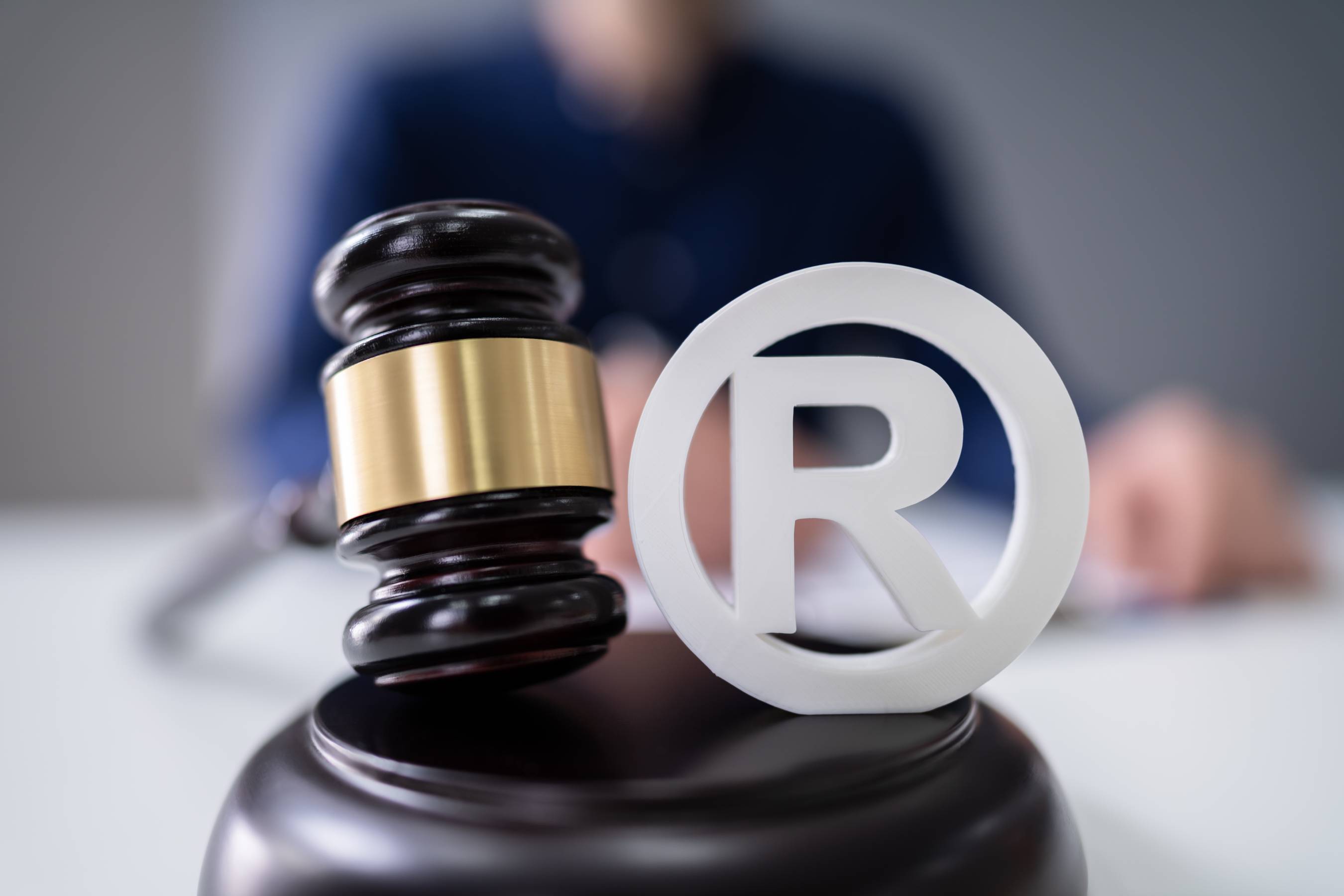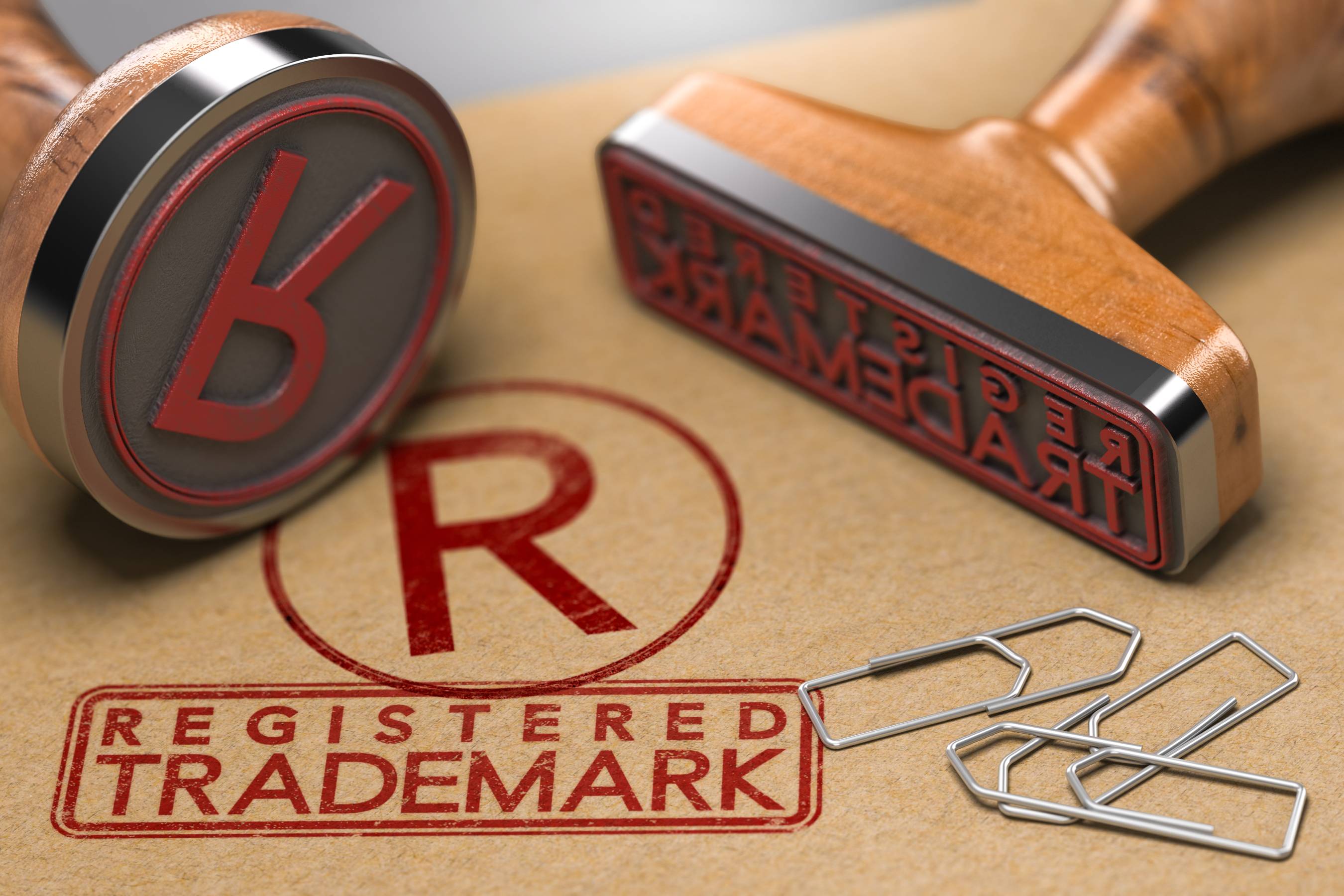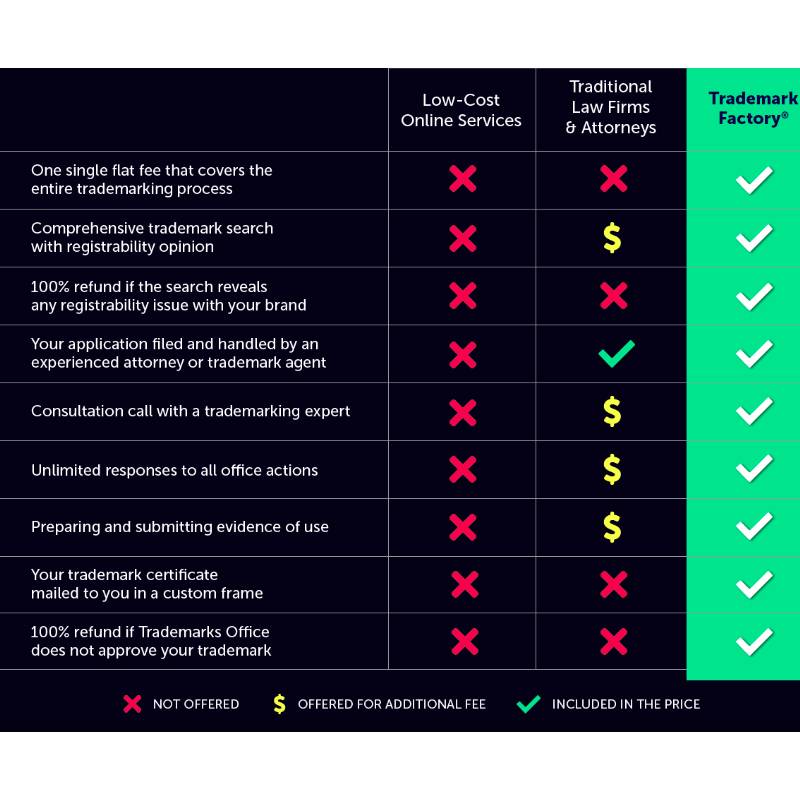How Much Does a Trademark Attorney Cost in 2024?

Understanding trademark law can be tricky, especially when you're trying to protect your brand. Even though costs might be a worry, hiring a skilled trademark lawyer is often really important. Since only about half of trademark applications get approved by the USPTO, having a good lawyer is really helpful. In 2024, the cost of a lawyer can vary a lot.
In this article, we will explore the various factors that affect trademark attorney costs, provide an overview of the average expenses associated with hiring one, and offer guidance on how to select the right attorney to meet your specific needs. Whether you're looking to secure a new trademark or handle ongoing legal matters related to your brand, understanding these aspects will help you make an informed decision and ensure that your trademark is effectively protected.
What Do Trademark Lawyers Typically Do
Trademark lawyers help with a variety of tasks related to trademarks. They can:
- Search for Existing Trademarks: They check if your desired trademark is already in use.
- File Trademark Applications: Trademark attorneys prepare and submit applications to register your trademark.
- Respond to Office Actions: They handle any issues or questions from the trademark office.
- Handle Trademark Disputes: Trademark lawyers assist if someone challenges your trademark or if you need to challenge someone else’s.
- Renew Trademarks: They help keep your trademark active by managing renewal applications.
- Advice on Trademark Protection: They offer advice on how to best protect and enforce your trademark rights.
- Monitor Trademarks: They keep an eye out for any possible infringement or misuse of your trademark.
These services ensure your trademark is properly registered and protected.
Things to Know Before Hiring a Trademark Attorney
When you're thinking about hiring a trademark attorney, it's important to know about the challenges and costs that can come up during the trademark registration process. Being aware of these can help you avoid unexpected expenses and make the process of securing your trademark smoother.
Consider the story of Apple Inc. When Steve Jobs, Steve Wozniak, and Ronald Wayne founded Apple in 1976, they soon found themselves in a legal dispute with Apple Records, the record label founded by The Beatles in 1968. The core issue was the similarity in their brand names, which led to concerns about consumer confusion.

The initial lawsuit was settled in 1981, with Apple Inc. agreeing to stay out of the music business. However, as Apple Inc. expanded into the music industry with the launch of iTunes and the iPod, further legal disputes arose. These disputes culminated in a significant settlement, giving Apple Inc. full rights to the "Apple" name, while Apple Records retained certain trademark rights under a licensing agreement.
This saga illustrates the importance of having a strong legal strategy in place when it comes to trademarks, particularly when similar names or industries are involved. To effectively manage trademark registration and avoid complex legal issues, it is essential to address two key components: comprehensive trademark searches and office actions.
1. Office Actions
Office actions are official notices sent by the government agency responsible for trademark registration, usually the United States Patent and Trademark Office (USPTO). These notices require a response from the trademark applicant or their attorney within a specific timeframe.
Office actions can be issued for various reasons. Sometimes, the problem is with the trademark application itself. For example, the description of goods or services might be too vague or generic. Other times, the issue is with the trademark. It might be too similar to an existing one.
Office actions aim to ensure all registered trademarks are unique. They must not confuse with other marks.
However, responding to office actions can be a complex and time-consuming process. It typically involves legal analysis and a detailed written response addressing the concerns raised by the government agency.
Failure to respond to office actions promptly and appropriately can result in a trademark application being rejected or even abandoned.
It is essential to have an attorney or trademark firm help you respond to office actions. An attorney or trademark firm will have the legal expertise and experience to analyze the issues raised in the office action and develop a solid response to address those concerns. They can also advise you on your options, such as amending the application or providing evidence to support your position.
Keeping this in mind, you should know that the cost of hiring a trademark attorney can drastically increase based on the number of times they have to respond to office actions.
The only way this won’t affect the hiring cost is if you choose to work with an attorney who supports a flat fee structure. This means they won’t charge you any additional fee regardless of how often they respond to office actions. We will elaborate more on this when we get to the trademark attorney pricing structure below.
2. Comprehensive Trademark Search
A comprehensive trademark search is a thorough search of registered and unregistered trademarks to determine whether a proposed mark is available for use and registration.

It is a critical step in the trademark registration process and can help avoid costly legal disputes down the line.
Here are some benefits of conducting a comprehensive trademark search:
- It can help you avoid infringing on existing trademarks. That could lead to costly legal disputes and rebranding.
- It can help identify potential conflicts and allow you to decide whether to proceed with the trademark registration.
- It can help find ways to strengthen your trademark. You could add a design element or a unique slogan.
A comprehensive trademark search differs from a direct-hit search, which only searches for exact matches of a proposed trademark. A comprehensive search, on the other hand, looks for potential conflicts based on similarities in sound, appearance, meaning, and related goods and services.
A comprehensive trademark search can help reduce the likelihood of receiving office actions during the trademark registration process. This is because a comprehensive search can help identify potential conflicts with existing trademarks, allowing you to decide whether to proceed with your trademark registration.
If a trademark application is filed without a comprehensive search and conflicts with an existing trademark are later discovered, the USPTO may issue an office action requiring the applicant to address the conflict.
Unfortunately, some law firms and trademark attorneys say a comprehensive trademark search is not needed. They do this so they can charge more for dealing with problems later that could have been avoided with a thorough search at the beginning.
Steps to Consider When Choosing a Trademark Attorney
Choosing the right trademark attorney can be key to your trademark case. It can affect your registration or litigation success. This section will discuss some critical steps to take when choosing a trademark attorney.
1. Researching Potential Attorneys
The first step in choosing a trademark attorney is to research potential candidates.
1. Ask for Referrals
Begin by asking people you know if they can recommend a trademark attorney. Friends, family, or colleagues who have gone through the trademark registration process or have previously worked with a trademark lawyer might have valuable suggestions.
2. Search Online
Use the internet to find trademark attorneys in your area. Search engines and legal directories are useful tools. When you search online, look for:
- Law Firm Websites: These often provide information about the attorneys' specialties, experience, and client testimonials.
- Reviews and Ratings: Read reviews from previous clients to gauge the lawyer's reputation and effectiveness. Reviews can reveal how well the attorney communicates, handles cases, and achieves results.
- Attorney Profiles: Check LinkedIn for profiles. You can learn about their backgrounds and qualifications.
3. Consult Legal Directories
Explore legal directories and bar association websites to find a list of trademark attorneys. These directories often include:
- Professional Listings: Detailed profiles of attorneys with their credentials, practice areas, and contact information.
- Bar Association Membership: Membership in state or national bar associations can be an indicator of an attorney's professional standing and commitment to legal ethics.
4. Evaluate Their Credentials
Check the attorney’s qualifications:
- Education: Review their educational background and any additional legal training.
- Professional Recognition: Check for any awards that show their expertise in trademark law.
2. Questions to Ask During the Initial Consultation
Once you have identified potential trademark attorneys, scheduling an initial consultation to discuss your case and ask questions is essential. Some questions to ask during the consultation include:
- What is your experience with trademark registration and/or litigation?
- What is your success rate with trademark cases?
- How do you charge for your services (hourly, flat fee, or mixed)?
- What additional expenses can I expect to incur during the trademark registration process?
- Does your fee cover unlimited responses to any and all office actions?
- How do you communicate with clients throughout the trademark registration process?
- How long do you estimate the trademark registration process will take?
- Can you provide references or examples of similar cases you have handled?
- What happens if a trademark you file is rejected? Do I get my money back?
Most trademark registration firms and attorneys will charge clients for consultations. However, we usually allow potential clients to request a free call with our experts. This helps us learn about your needs and explain everything you need to know about trademarking your business.
3. Reviewing the Attorney's Fee Agreement
Before hiring a trademark attorney, it is essential to review their fee agreement carefully. The fee agreement should outline the attorney's fees and expenses, the payment schedule, and the scope of their services.
It’s crucial to ensure that the fee agreement is clear and reasonable and that you fully understand the terms and conditions. Consider consulting with another attorney to review the agreement if you are uncertain about any of the terms.
Overall, choosing a trademark attorney requires careful consideration and research. By asking the right questions and reviewing the attorney's fee agreement, you can find a qualified and experienced lawyer who can help you protect your trademark and achieve your legal goals.
What Are the Factors Affecting Trademark Attorney Costs?
The cost of hiring a trademark lawyer can vary depending on several factors. Some of the factors are:
1. Experience and Expertise of the Attorney
More experienced attorneys with a track record of successful trademark registrations and litigation tend to charge higher fees than less experienced attorneys. For example, a trademark attorney who has been practicing for many years may charge more than a new attorney who has just started their practice.

2. Type of Trademark Registration Needed
The type of trademark registration needed can also affect the cost of a trademark attorney. For example, registering a standard character mark (i.e., a word or phrase without a design element) or a design mark (i.e., a logo or graphic) may be less expensive than registering an unconventional mark (such as a sound or a smell mark). Similarly, registering a trademark for a niche market or a less competitive industry may be less expensive than registering a trademark for a highly competitive industry.
3. The Complexity of the Case
Registering a trademark is usually cheaper and easier if there are no disputes. But if someone else is using the trademark or if there have been issues before, it can be more complicated and costly.
What’s the Average Cost of Trademark Lawyers?
There are several fee structures to consider when calculating the cost of hiring a trademark attorney. This section will explore the most common fee structures used by trademark lawyers and provide an overview of the average costs.
1. Hourly Fees
One of the most common fee structures trademark attorneys use is hourly billing. This means the attorney charges a set hourly rate for their services, and the client is billed for the actual time spent working on the case.
An average trademark attorney’s hourly rates range from $180 to $800 per hour.
2. Flat Fee Structure
Another fee structure used by trademark attorneys is a flat fee model. This means that the attorney charges a set fee for their services, regardless of the time spent working on the case.
Flat fees for trademark registration can range from $1,000 to $4,500.

3. Mixed Type
A mixed fee arrangement combines both hourly and flat fee structures. For instance, an attorney might charge a flat fee for filing the application and an hourly rate for additional services like responding to office actions or trademark monitoring. While this structure can accommodate varying levels of work, it may lead to higher overall costs, making it harder for clients to budget accurately.
For example, let's say that a trademark attorney charges a flat fee of $750 for filing a trademark application but also charges an hourly rate of $400 for any additional legal services, such as responding to office actions, trademark monitoring, etc.
If the attorney spends an additional 10 hours working on the case, the total cost of the services will be $4,750, which is significantly higher than the original flat fee.
Additional Expenses
In addition to the attorney's fee, additional expenses may be associated with the trademark registration process. For example, the USPTO charges a filing fee for trademark applications, ranging from $225 to $600 per class of goods or services. Other expenses may include search fees, trademark monitoring fees, and fees associated with responding to office actions or oppositions.
It is essential to discuss all potential fees and expenses with the trademark attorney before hiring them, to ensure that there are no unexpected costs later in the process.
When you work with our trademark experts, the only extra costs you'll have are the government fees, like those charged by the USPTO. All three of our packages include a comprehensive trademark search with a registrability opinion as part of our flat fee. If you choose the All-Inclusive or Ultimate package, you'll also get unlimited responses to office actions at no additional cost. The Ultimate package goes a step further by including defense in case of opposition proceedings.
Choose the Right Attorney to Protect Your Brand
To show why trademark protection and working with professionals matter from the beginning, think about a recent case where a big pizza chain took action against a small restaurant for having a similar name and logo. The Pizza chain Domino’s Pizza won a lawsuit against a small Indian restaurant named Dominic Pizza because their names and logos were too similar. The court decided this was trademark infringement because customers might think Dominic Pizza was connected to Domino’s.
This example highlights the importance of working with professionals from the start. They can help you understand trademark rights and prevent others from copying your brand.
Moreover, trademarks filed with the help of an attorney have a 60% higher chance of being approved compared to those filed without professional assistance.

At Trademark Factory, our mission is to help growth-minded entrepreneurs build amazing brands. Here is what makes us stand out:
Fixed-Rate Service
Trademark Factory offers a 100% done-for-you service with a one-time fixed rate. This covers everything from search and filing to responding to office actions, with no additional fees or recurring payments.
All-Inclusive Service
When you choose Trademark Factory, our team of legal professionals and trademark advisors will handle every part of your trademark registration process. Once onboard, you will only need to provide the necessary information or documents as requested. Our attorneys and trademark agents will draft and file your application, ensuring that all legal requirements are met.
With our 100% done-for-you service, you can relax and let us manage the entire process for you. We handle all the paperwork and communications, so there are no additional fees or ongoing payments beyond the initial fixed rate. Our aim is to make the process as smooth and stress-free as possible for you.

Guaranteed Results
We have a 99.3% success rate. If we find issues before filing or if your application is rejected after filing, you get a full refund. Our experience and high success rate back up our promises.
Experienced Team
Our large team of over 30 professionals handles every part of the process in-house. We ensure that everything is managed with care and expertise.
Free Consultation
In most cases, you'll need to pay a legal consultation fee before they give you personal advice since every case has so many variables. You won't find a fixed average rate, but you may see discounted attorney consultation fees of $50 to $100 for the first hour.
At Trademark Factory, we offer a free consultation. Start with a free call with one of our specialists to determine if we’re the right fit. This risk-free consultation will help us understand your needs and recommend the best package for you.
Conclusion
In 2024, knowing how much a trademark lawyer costs is important for keeping your brand safe. The price can change based on a few things, like how experienced the lawyer is, what kind of trademark you need, and how tricky your case is.
Experience: More experienced lawyers often charge more, but they know how to handle complex trademark issues better.
Type of Registration: The kind of trademark you’re registering—whether it's just a name, a logo, or something unique—can affect the cost.
Complexity: If there are any disputes or special legal issues, it might cost more because it takes more time and work.
Even though hiring a trademark lawyer can be expensive, it's a smart investment. A good lawyer helps you avoid common problems, deals with any issues that come up, and keeps your trademark safe from others who may try to copy it.
Choosing the right lawyer means you can be sure your trademark is registered correctly and protected. This helps avoid future legal troubles and extra costs, letting you focus on growing your brand. By understanding these factors, you can make the best choice for securing your brand’s future.



